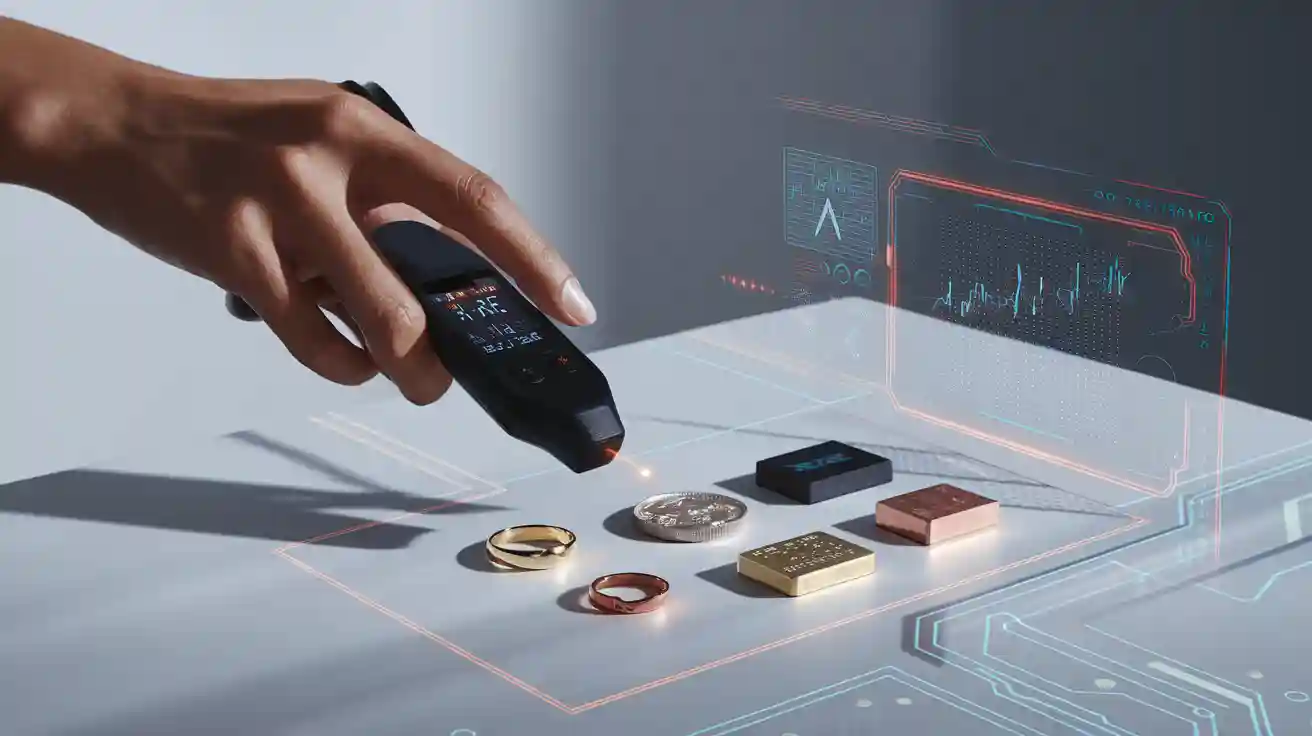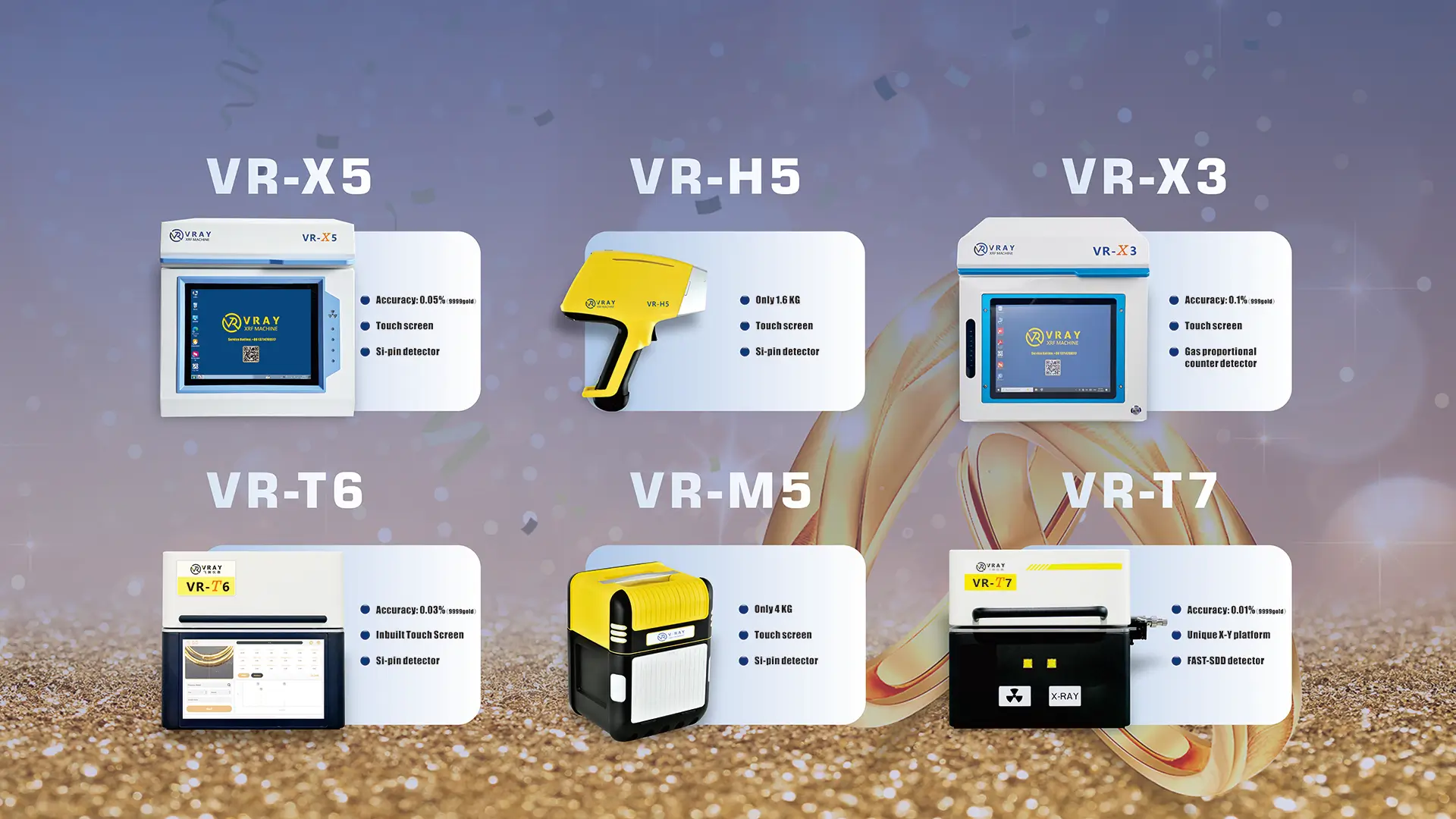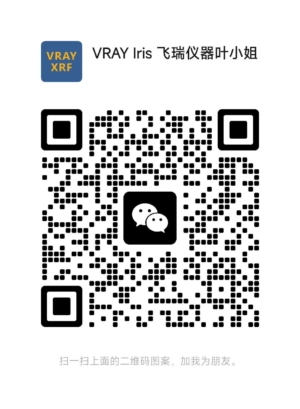¿Es XRF la única forma de probar el oro sin daño??
The short answer is no—XRF is not the only method—but it is by far the most accurate, fastest, and most convenient non-destructive technique available today. Other methods, like ultrasound or density testing, can also be non-destructive, but they often lack the precision and versatility of XRF. For professionals who need reliable results in seconds without altering the sample, XRF remains the gold standard in the industry.

Por qué es importante las pruebas de oro no destructivas
Gold items often carry not just material value but also artistic, historical, and emotional significance. A scratched or chemically altered surface can significantly reduce the resale value. That’s why industries such as jewelry retail, gold recycling, Casas de empeño, and precious metal refineries have moved away from abrasive and chemical methods like touchstone and acid tests.
Ensayos no destructivos (NDT) methods allow professionals to:
- Verify gold purity while preserving the product’s appearance.
- Build customer trust by avoiding visible damage.
- Conduct repeat tests without degrading the sample.
- Save time compared to destructive lab-based methods.
Non-Destructive Methods for Gold Testing
Although XRF is the most widely adopted, let’s examine the main alternatives.
- Prueba de densidad (Hydrostatic Weighing)
Measures the displacement of water to calculate density. This method is simple and inexpensive but has limitations—it cannot distinguish between pure gold and alloys with similar densities, such as tungsten-filled gold bars.
- Ultrasound Testing
Uses sound waves to detect differences in material composition. This can be useful for large bullion, but accuracy declines with small or irregular items like jewelry.
- Electrical Conductivity and Magnetic Tests
These quick field checks can spot obvious fakes, but they cannot determine exact gold purity and may be fooled by non-magnetic alloys.
- Fluorescencia de rayos X (XRF) Análisis
Uses high-energy X-rays to measure the elemental composition of gold. It delivers laboratory-grade precision in seconds, works on solid, powdered, or liquid samples, and requires no sample preparation. Unlike other methods, XRF can detect multiple metals in an alloy and calculate exact percentages.
Why XRF Stands Out in the Field
While other methods have niche uses, XRF offers an unmatched combination of speed, exactitud, versatilidad, y seguridad. For businesses that handle high-value items daily, the benefits are clear:
- Exactitud: Detects over 20 elements and determines gold purity within ±0.03% (or ±0.001% for advanced models).
- Versatilidad: Works on jewelry, Monedas, Bares, chatarra, Recubrimientos, and even high-purity gold in electronics.
- Eficiencia: Results in under 10 sobras, without chemicals or consumables.
- Documentación: Generates digital reports for quality control and customer records.
Vray Instruments: Professional XRF Solutions

As a leader in precious metal testing technology, VRAY Instruments provides a complete range of Analizador XRFs tailored for different industries.
For Jewelry Stores and Retailers
- VR-X3 – Reliable and cost-effective, perfect for daily gold and silver purity checks.
- VR-N3 – User-friendly with high stability, ideal for small shops and gold buying centers.
For Gold Recycling and Refining
- VR-X5 – Enhanced sensitivity with a custom Detector de si-pin, capaz de probar sobre 20 Elementos.
- VR-T5 / VR-T6 – Advanced Multi-FP software and microlight technology for fast, precise analysis of complex alloys.
For High-Purity Gold Quality Control
- VR-T9 – Ultra-high accuracy of ±0.001%, perfect for 99999 gold verification in manufacturing and wholesale.
For Mobile and On-Site Testing
- VR-M5 – Portable with HD camera and built-in radiation protection, great for field use.
- VR-H5 – Handheld, rugged, y rapido, designed for mining sites, trade shows, and mobile recycling.
For Advanced Laboratory and Quality Inspection
- VR-S6 – Compact EDEspectrómetro XRF with full element range, perfect for R&D labs and inspection agencies.
Choosing the Right XRF for Your Business
When selecting a gold testing solution, considerar:
- Entorno de prueba – Will you work in a lab, store, or the field?
- Precisión requerida – Is ±0.03% enough, or do you need ±0.001% precision?
- Sample Types – Jewelry, bullion, chatarra, o recubrimientos?
- Budget and ROI – Investing in faster, more accurate equipment often pays for itself through improved trust, reduced errors, and higher throughput.
Recomendación final
While density, ultrasound, and other methods can help in certain cases, XRF remains the most reliable all-around non-destructive method for testing gold. For professionals who handle gold regularly, investing in a high-quality XRF analyzer from VRAY Instruments ensures accurate results, operational efficiency, and customer confidence—without the risk of damaging valuable items.
Preguntas frecuentes
Q1: Can XRF detect fake gold plated over tungsten?
A1: Sí, XRF can detect the presence of tungsten beneath a gold coating by analyzing the full elemental composition.
Q2: Does XRF require calibration every time?
A2: No, VRAY’s analyzers come pre-calibrated, though periodic verification ensures optimal accuracy.
Q3: Can I use XRF for other precious metals?
A3: Sí, VRAY XRF devices test platinum, paladio, rodio, y muchos otros metales.
Q4: Is XRF safe to use in a store?
A4: Sí, VRAY’s devices have built-in radiation shielding and safety interlocks to protect operators.
Q5: ¿Cuánto tiempo dura una prueba XRF??
A5: Most tests take less than 10 sobras, with instant digital results.

WhatsApp
Escanea el código QR para iniciar un chat de WhatsApp con nosotros.